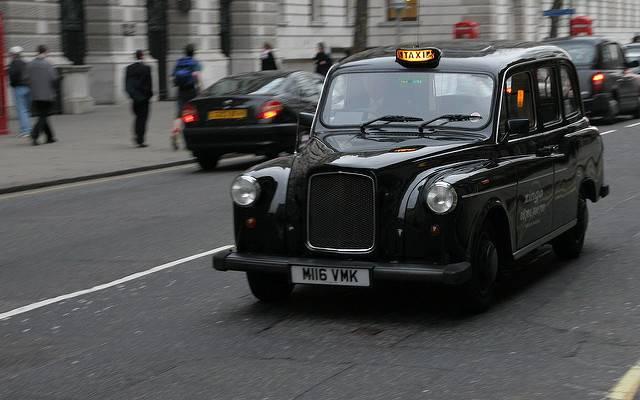
One of the most iconic sights in London are the black cabs, or hackneys, that have sailed on the city’s streets since the late 19th century. But over time, London’s taxi fleet has contributed to the city’s air pollution woes. Estimates suggest that the city's 23,000 diesel-powered black cabs contribute as much as 15 percent of London’s nitrous oxide emissions and up to 35 percent of its black soot, or PM10 emissions, that can contribute to a bevy of public health problems. Even the free-market beacon The Economist has called out the health and pollution problems that sidetrack London and much of the United Kingdom.
To that end, London’s city government is working to transition more of its cab fleet to electric vehicles (EVs) by 2020. It does not really have much of a choice, as the city of 8.7 million people will launch what it calls an Ultra Low Emission Zone (ULEZ) in September 2020. Any motorized vehicle will have to meet strict exhaust emissions standards or pay a heavy surcharge to commute around the city center. Electric vehicles (EVs) are one way for drivers to stay compliant and move about freely on the city’s streets.
The London Taxi Company (LTC), which is owned by the same Chinese conglomerate that owns Volvo Cars, has been testing an electrified version of the black cab in Norway's Arctic region. As the BBC reports, LTC engineers want to ensure that the cars can perform in the most extreme conditions. Furthermore, executives have become more bullish on the vehicle’s prospects in other markets, including cities like Moscow where long winters lead to atmospheric conditions that often exacerbate poor air quality. LTC has its sights set on other cities such as Oslo and Amsterdam, but current diesel-fuel taxis will not do – electrification will be key if we will see those boxy cars within other cities in the near future.
Of course, electrification will not be enough, as a new fleet of vehicles will require some tweaks across London’s transportation infrastructure. LTC says it will do its part by installing 150 rapid charging stations by 2018 and another 300 by 2020.
Then there is the challenge of convincing local taxicab drivers, who generally own their vehicles, to make the switch. LTC says 80 percent of the approximately 1,200 drivers the company surveyed last fall said they are “interested” or “very interested” in buying a zero-emissions vehicle, but the devil is in the details. The U.K. government offers some financial incentives to switch to electric, and owners of such vehicles are also exempt from other licensing fees. But at a cost of US$48,800, it's still a huge investment, even after rebates, for the average London taxi driver who is also competing with the likes of ridesharing companies such as Uber.
London’s government is striving to clean up it entire public transportation system. The city’s high cost of living in part has nudged more residents to use city buses, so the city is introducing 12 new low-emission bus zones by 2020 to help clean up the city’s air. London has to work on it’s famous subway, or “tube” network, as well: recent research suggests underground commuters breathe in the most polluted air, while the drivers of cars spewing out pollutants are perversely the least exposed to pollution themselves.
Image credit: James Barrett/Flickr

Leon Kaye has written for 3p since 2010 and become executive editor in 2018. His previous work includes writing for the Guardian as well as other online and print publications. In addition, he's worked in sales executive roles within technology and financial research companies, as well as for a public relations firm, for which he consulted with one of the globe’s leading sustainability initiatives. Currently living in Central California, he’s traveled to 70-plus countries and has lived and worked in South Korea, the United Arab Emirates and Uruguay.
Leon’s an alum of Fresno State, the University of Maryland, Baltimore County and the University of Southern California's Marshall Business School. He enjoys traveling abroad as well as exploring California’s Central Coast and the Sierra Nevadas.














